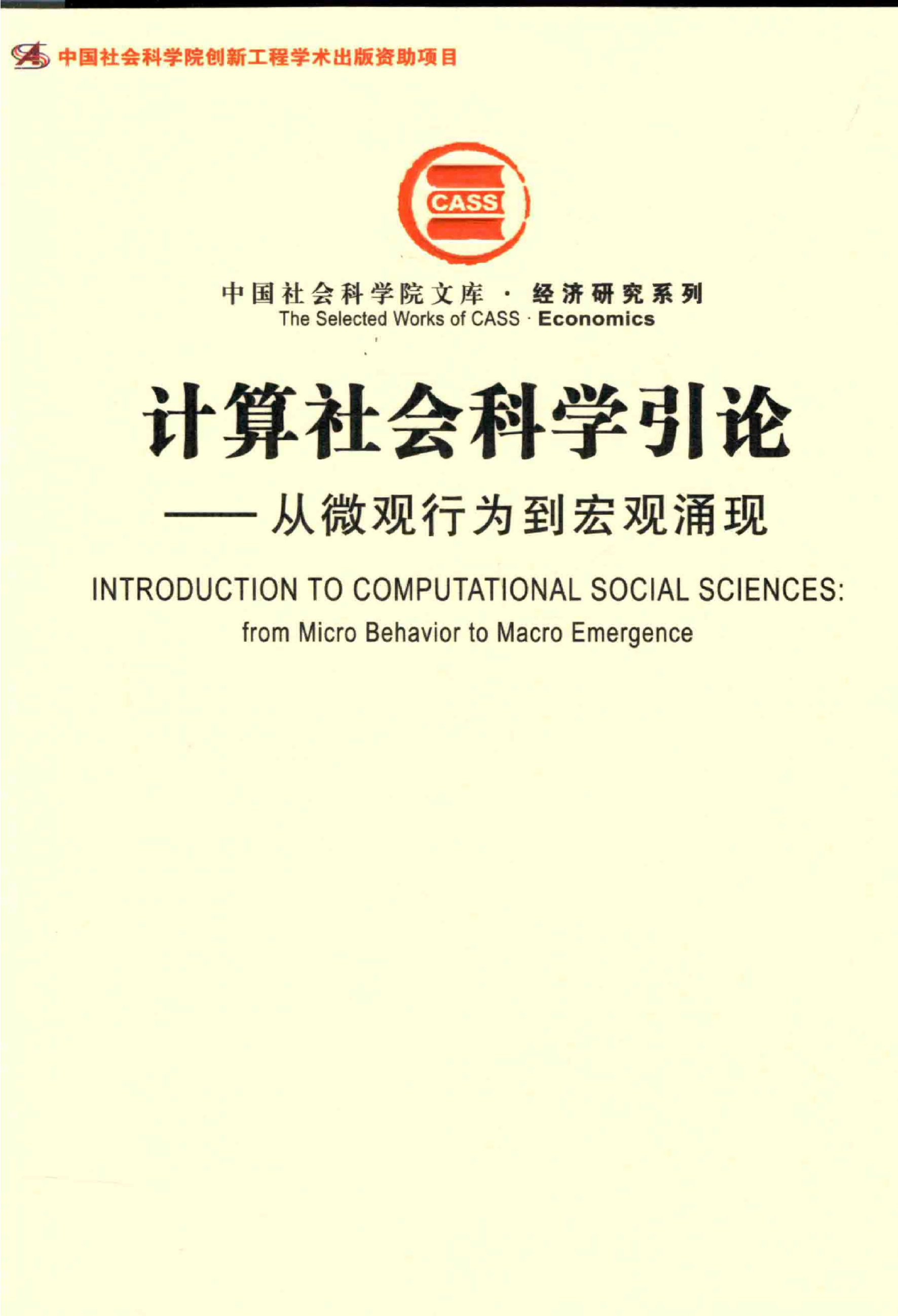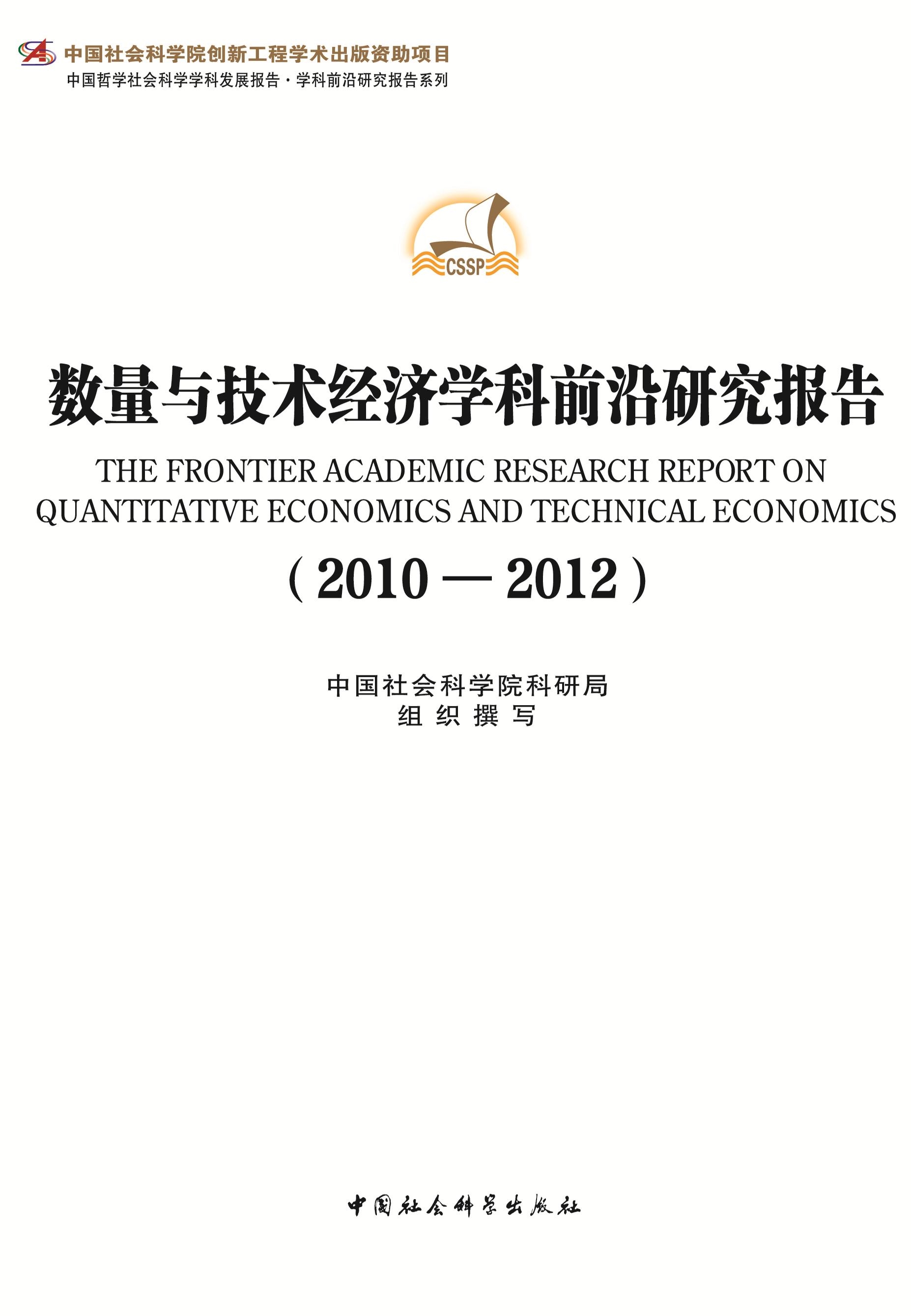内容简介
作者简介
目录
Human behavior is the common objects and the logical starting point of humanities and social science research,and is the hinge connecting all branches of them.Based on and circumfusing the deepening analysis of the behavior,this monograph mainly discusses the behavioral motivation,conducting mechanism and evolutionary process of the complex phenomenon of human society.There are vivid viewpoints,rich in content,broad interdisciplinary,endogenous exploration of multi-attribute behaviors for heterogeneous interacting agents,and some original insights in this book,and the relationship between academic perspective and expanding contents is close.It has been constructed that there are computational experiment as a forming core method and a relatively clear and reasonable analytic framework for whole book including:both theoretic foundation as part 1,and methods relevant to computation as part 2,along with applications as part 3.Part 1 includes 3 chapters for discussing depiction,evolution of social and economic behavior,and the essence of complexity and emergence;Part 2 briefly illustrates ABM,computational game theory and some software and platform relevant to computational experiment with integrated modeling and simulation based on agent’s behavior;Part 3 covers 5 chapters including some applied cases in various fields such as collective action,economic and financial modeling and simulation,political and legal issues,social and historical process,language communication,and as well as management behavior,these experiences highlighted the importance and feasibility of computational experiment in social sciences,and gave prominence to “understanding macro through micro” characteristics.Based on the behavioral analysis and by method of computational experiment,it is potential power to study the development of human and society with computational technologies in order to promote integrating all branches and making decision under complex scenarios,and to improve the methodology of social science research.Key words:Deepening analysis of behavior;Integrated modeling;Computational experiment;Humanistic & social sciences;Interacting integration
全部显示∨
王国成,中国社会科学院数量技术与技术经济研究所模型研究室主任,经济学博士,研究员,博士生导师,主持过国家重大项目、国家社会科学基金项目和国家自然科学基金项目。
开篇第一章 绪论第一节 动因与背景
第二节 主要研究内容与框架体系
第三节 基本方法和途径
第四节 前景展望
理论篇第二章 深化行为分析:对个体行为的认知及演进第一节 行为分析基础
第二节 理性主义的嬗变
第三节 认知偏差
第四节 打开行为“黑箱”与拓展研究视野
第三章 行为刻画与建模第一节 基本原理和基准模型
第二节 一致性模型及实现条件
第三节 行为假设的逻辑检验
第四章 复杂与涌现第一节 复杂与涌现的本质特征
第二节 群体涌现
第三节 多元行为属性与多形态涌现
第四节 人文复杂性与人文逻辑
方法篇第五章 ABM第一节 基本原理和方法
第二节 算法与软件
第三节 社会科学仿真模型
第四节 比较与实证
第六章 计算博弈论第一节 算法博弈论
第二节 博弈计量
第三节 演化博弈均衡计算
第四节 博弈均衡计算示例
第五节 复杂网络与多边利益协调计算
第七章 计算实验第一节 实验原理和一般步骤
第二节 计算实验平台
第三节 实验运行与关键问题控制
第四节 HS+CA
第五节 实验结果分析、判断、推广和改进
应用篇第八章 群体行为计算第一节 群体行动的结构与形态
第二节 群体行动的可计算原理与技术实现
第三节 基于异质性主体真实行为特征的群体行动建模计算
第九章 经济:微观行为关键特征与宏观复杂现象第一节 行为—制度—增长
第二节 收入差距演变的行为分析与微观模拟
第三节 异质性员工薪酬激励计算实验的设计及模拟实现
第十章 金融:投资行为偏差与金融市场异象第一节 金融市场复杂性的微观成因
第二节 HS与CA相结合的计算实验金融
第三节 基准模型与行为检验
第四节 应用案例
第五节 小结
第十一章 计算管理科学第一节 计算管理学的原理、特点与基本方法
第二节 计算管理学的主要分支与应用领域
第三节 行为管理与临界控制
第四节 城市管理、社会管理与相关计算应用案例
第十二章 多领域行为建模计算第一节 自然语言处理
第二节 行为信号处理
第三节 新闻传播的建模计算
第四节 政治与法律
第五节 社会与历史
第六节 结语
参考文献
附录附录一 异质员工薪酬激励仿真相关的基本参数计算程序(MatLab)
附录二 异质员工薪酬激励与企业绩效部分模拟结果
附录三 经管行为实验平台(PEP系统)组图








